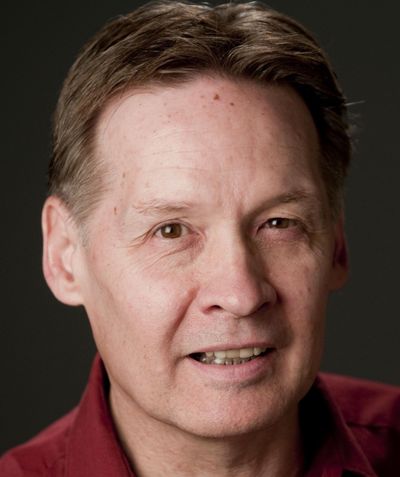Spin Control: The 2004 Washington election was not – repeat NOT – rigged

Primarily, I shuddered in anticipation of the reaction to the story I would write about the views of elections officials in Washington and Idaho, who could be counted on to defend our voting processes. That reaction was as predictable as it was swift:
What about the election that was stolen from Dino Rossi?
Sure enough, last week’s story that puts prospects of “rigging” Washington’s or Idaho’s election somewhere between highly improbable and next to impossible generated reader comments citing the 2004 gubernatorial election as proof that Trump was right.
No, it isn’t. No way. Nyet. Nein.
For those who have forgotten or weren’t around 12 years ago, Republican Rossi and Democrat Chris Gregoire were running for the open governor’s seat. Gregoire had the early edge, but Rossi was a good campaigner and was coming on strong in the final two weeks. He was ahead on election night, she was ahead the next day, it went back and forth for two weeks and in the final canvass, Rossi was ahead by 261 votes.
That triggered a statute-required automatic machine recount, under the watchful eyes of both party’s observers. This left Rossi ahead by 42. That triggered a hand recount. During the recounts, several counties – not just King County – discovered some ballots that had been properly cast, but not counted. The political parties went to court, all the way to the Supremes, in a fight over what to do with them.
The court ruled that since the voters had done everything right, but the counties had made the mistakes, they should be counted. They were, and Gregoire finished that last recount ahead by 129.
The state Republican Party sued. They chose an Eastern Washington venue, Chelan County, for the trial, and in May the state’s political cognoscenti encamped in Wenatchee for two weeks to hear charges and countercharges of corruption, manipulation and ballots cast by corpses and felons.
In the end, the Republicans couldn’t prove any of their claims. Democrats found a few felons who thought they were eligible to vote, but cast a ballot when they legally shouldn’t have. They said they voted for Rossi. (Big surprise; as the state’s attorney general at the time, Gregoire was the state’s chief law enforcement officer.)
The judge deducted four votes from Rossi’s total, and it was done. Gregoire by 133 votes out of 2.7 million cast.
So to recap, there was no talk of conspiracy or vote rigging before the election. Questionable ballots came from all over the state, including counties that went heavily for Rossi. The ballots were pored over by partisan watchdogs for the recount. The questioned ballots were decided by the Supreme Court and the final result subjected to a two-week trial with no proof of felonious chicanery.
That is not remotely like what Trump is alleging. The only similarity is that just as Republicans have been casting aspersions on the nation’s voting procedures for a couple of decades by demanding stricter ID laws, the Washington GOP and other Rossi sympathizers have been undercutting their state’s election process for 12 years by saying he really won that election.
But he didn’t. And he didn’t win the rematch in 2008, either. So maybe everyone can just stop referring to the 2004 election as being stolen from Dino Rossi. If anything, it’s an example of the system working, even if it took a long time and delivered a result you didn’t like.
Put your hand
in the hand …
National news commentators were almost apoplectic Wednesday night when Trump and Hillary Clinton didn’t shake hands before or after the final debate. That was down from two shakes in the first debate and one rather grudging one at the end of the second.
Colleague Jonathan Brunt did a little digging for the blog on Thursday and determined that it was the first presidential debate in the “modern era” in which the candidates didn’t shake hands at least once.
By modern era debates, politicos usually mean since 1976, when the practice resumed after a 16-year hiatus brought on by Richard Nixon and his 5 o’clock shadow cleaned by John Kennedy. That raises the question, did Nixon and JFK shake hands for their four debates?
For three debates, the answer is yes, but not on camera. Those first debates were pretty formal, with the television coverage starting and ending with the candidates at their lecterns. But there are news photos of the two candidates shaking hands either before or after the first, second and fourth.
It’s a sure bet they didn’t shake hands for the third but not because of any animus. Kennedy was in New York for that debate but Nixon was in Los Angeles. They were tied together for television by a satellite link.
Spin Control, by Jim Camden, appears at www.spokesman.com/ blogs/spincontrol.